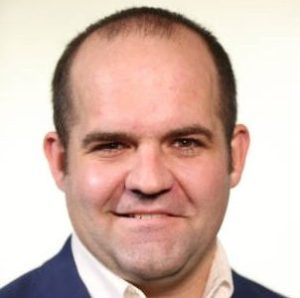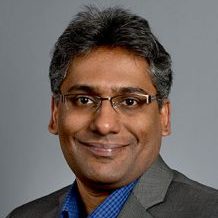
Dec. 28, 2016
Hong He
Issues of biodiversity, conservation, and ecosystem management increasingly need to be addressed at large spatial and temporal scales. Our research in landscape ecology puts ecological questions in such large spatial and temporal contexts. Our research in geographic information sciences explores new technical advances to help process and analyze large spatial data. We endeavor to advance the science and technology to solve regional planning, management, conservation, and restoration problems.

Dec. 28, 2016
Lori Popejoy
My professional nursing career has spanned about 30 years. In my early practice I worked primarily in intensive care nursing. The majority of that time I was in mid-level management. During my mid-career, I worked primarily in the nursing home setting as a study coordinator for several large nursing home research projects. From there, I reentered the management role as the Director of Nursing for Sinclair Home Care, which was the practice site for a study about aging in place. My work experience, which has included hospitals, nursing homes, and home health, has great depth and has inspired me to…

Dec. 28, 2016
Jared Decker
Genomics provides us with an opportunity to tackle questions that previously we did not have adequate tools to address. I use genomic data in multiple ways, from improving genome assemblies, to identifying causal variants, to investigating the genetic history of species.

Dec. 28, 2016
Prasad Calyam
Prasad Calyam is the Greg L. Gilliom Professor of Cybersecurity in the Department of Electrical Engineering and Computer Science at University of Missouri-Columbia, and Director of the Center for Cyber Education, Research and Infrastructure (Mizzou CERI). His research and development areas of interest include: Cloud Computing, Machine Learning, Artificial Intelligence, Cyber Security, and Advanced Cyberinfrastructure. He has published over 200 peer-reviewed papers in various conference and journal venues. As the Principal Investigator, he has successfully led teams of graduate, undergraduate and postdoctoral fellows in Federal, State, University and Industry sponsored R&D projects totaling over $39 Million. His research sponsors include:…

Dec. 28, 2016
Shi-Jie Chen
The current experiments on structural determination for RNA molecules cannot keep up the pace with the steadily emerging RNA sequences and new functions. This underscores the request for an accurate model for RNA three-dimensional (3D) structural prediction. Although considerable progress has been made in mechanistic studies, accurate prediction for RNA tertiary folding from sequence remains an unsolved problem. The first and most important requirement for predicting of RNA structure from physical principles is an accurate free energy model. Based on rigorous physical principles, Chen’s lab is developing computational models to predict 3D tertiary structures, energy landscapes, and kinetic mechanisms for…

Dec. 28, 2016
Min Soon Kim
Dr. Min Soon Kim is an Assistant Professor at the Department of Health Management and Informatics at the University of Missouri at Columbia. He received his M.S. and Ph.D. degrees in Biomedical Engineering at the University of Texas at Austin. Dr. Kim had excellent research opportunities in collaboration with interdisciplinary researchers in a range of areas within biomedical informatics, including health information technology evaluation, public health informatics and clinical research informatics. Prior to joining to HMI, he has served as a research fellow at the Center for Biomedical Informatics, Mount Sinai School of Medicine, NYC, NY. Prior to postdoctoral experience,…

Dec. 28, 2016
Timothy Matisziw
Dr. Tim Matisziw is an Associate Professor at University of Missouri-Columbia (MU) with a joint appointment in the Department of Geography, Department of Civil & Environmental Engineering, and MU Institute for Data Science and Informatics. He is also the Director of the United States Geospatial Intelligence Foundation (USGIF) accredited Geospatial Intelligence Certificate program (graduate and undergraduate) at MU. He regularly teaches courses in geographic information systems (GIS), transportation geography, location analysis and site selection, and the geospatial sciences in national security. His primary areas of interest and expertise include transportation systems, spatial optimization, geographic information, and spatial decision support systems. Dr.

Dec. 28, 2016
Joi Moore
Dr. Moore received her B.S. degree in Computer Science and M.S. degree in Management from North Carolina State University, both focusing on a minor in Management Information Systems. After teaching for two years in the Department of Computer Information Systems at Shaw University, Dr. Moore turned her attention to earning her Ph.D. in Instructional Technology from the University of Georgia with a cognate area of Management Information Systems. Her current research agenda is the application of appropriate design principles for computer-based environments that support learning and/or effectively improve a desired performance. She has served as President of the Training and…

Dec. 28, 2016
Eduardo Simoes
My research and teaching interests include: use of health management and informatics to improve planning, policy development, management and evaluation of health care, public health programs and global health initiatives. Use information technology to address surveillance of preventable diseases and their complications in order to tailor health programs and activities. Health care service and outcome research. Teaching of epidemiology, preventive medicine and public health applications of information technology.